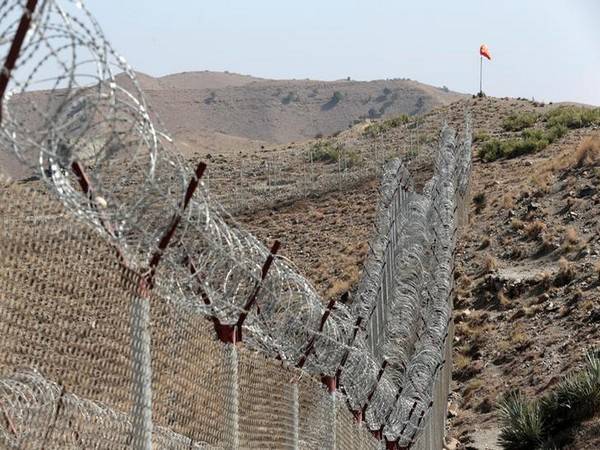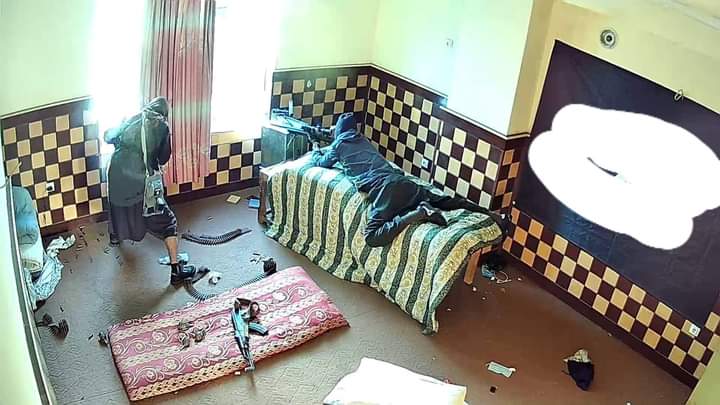The recent shootout in Kabul targeting a senior Pakistani diplomat appears to be what is being described as an extension of the terrorists’ war directed against the Pakistani State, writes Shantanu Mukharji
There does not seem to be any abatement in the rising incidents of terror in Afghanistan. It has now assumed serious proportions especially after the attack on the Pakistan Embassy in Kabul last week. Questions are being raised by eminent security analysts whether the Taliban dispensation in Afghanistan has the capacity and the grit to fight the various terrorist groups active in Afghanistan.
The recent shootout in Kabul targeting a senior Pakistani diplomat appears to be what is being described as an extension of the terrorists’ war directed against the Pakistani State. While the Islamic State-Khorasan (IS-K) has claimed responsibility for the assault, the identity of the attackers remains unknown. In a statement posted on social media, the group confirmed that the Pakistani envoy was the specific target.
Meanwhile, a spokesman for the Afghan Taliban administration disclosed that the attacker was from a foreign country and an active IS-K member. Some foreign anti-state forces are behind the attack and the aim was to create distrust between Pakistan and Afghanistan, according to the spokesman. It is now clear that the attack was well planned. The assailant seemed adequately armed and well trained. The Pakistani envoy narrowly escaped, a Pakistani security official sustained grave injury.
It was a serious security breach as the attacker managed to enter the high security Embassy premises. The incident highlights the deteriorating security situation in Afghanistan and also a pathetic state of intelligence to tackle the terrorists. In another incident the same day, unidentified militants detonated a car bomb and tried to storm the headquarters of Hezb-i-Islami, headed by Gulbuddin Hekmatyar, in Kabul. The former Afghan Prime Minister was unhurt. It is being speculated that both the incidents are interlinked.
Analysing the incident, it would appear that the assault on the Pakistani embassy came with the Tehreek-e-Taliban Pakistan’s (TTP) calling off a tenuous ceasefire with Pakistan. The outlawed militant group based in Afghanistan, has stepped up its terrorist actions in Pakistan’s selected regions in the aftermath of that.

There has also been a marked spurt in cross-border attacks on Pakistani security forces. The return of the regressive Islamic regime in Afghanistan has emboldened Pakistani militant groups taking shelter in that country. Pakistan’s assessment in its appraisal of the terrorist groups in Afghanistan has also gone wide off the mark. It must revisit its Afghan policy.
Predictably, the so-called peace negotiations that the Afghan Taliban facilitated have now collapsed, with the TTP refusing to lay down their arms. Instead, the group had put up its own conditions that virtually call for a surrender of Pakistan’s control over the former tribal regions.
In the meantime, in another Pakistan related development, former Prime Minister Imran Khan has come under severe criticism for his latest change of tack which has caught his adversaries by surprise. For months, Islamabad had prepared itself for a siege, and was reinforcing security around the capital. But the Pakistan Tehreek-e-Insaf’s (PTI) decision to call off the march at the last minute and dissolve the Punjab and Khyber Pakhtunkhwa assemblies has changed the entire scene.
Such dramatic happenings occurred on the eve of the change of guard in Pindi, lending an interesting twist to the power game. The change of strategy came in the garrison city as the climax to the march that was aimed at forcing the government to cave in to the call for early elections.
It is, therefore clear that the PTI’s months-long campaign could not achieve any of its objectives. The dissolution of the assemblies in the two most powerful provinces and the possible pulling out of PTI members from the other provincial legislatures could certainly deepen the political crisis, making it harder for the fractious ruling coalition to survive. However, it may not be the end of the game. According to authoritative sources, while the PTI leadership has approved the decision, one is still waiting for its implementation. Overtly, there should not be any problem with the two chief ministers on board, but nothing can be taken for granted until it is done.
Also, the dissolution of the provincial assemblies will not constitutionally bind the federal government to dissolve the National Assembly and call for general elections. But elections in the two provinces within 90 days could change the entire political game. The entire game-plan is noticed to completely destabilize the system.
One the other hand, the frequent trips of Prime Minister Shebhaz Sharif to London for meetings with his elder brother blatantly demonstrate where the real power lies. They have reinforced the perception of a head of government with no real authority to take decisions on important national issues. The Prime Minister even needed the approval of the elder Sharif for the appointment of a new army chief. This looks preposterous.
This rule by proxy has widened the power vacuum in Islamabad. Disarray in the coalition government is apparent. The powerless Prime Minister does not seem to have the capacity to deal with the multiple crises confronting the country. The drift is ominous. Rule by remote control has seriously undermined the legitimacy of the present dispensation. This is aptly elaborated in `Dawn’ in its editorial dated November 16 as well as in other dailies.
From the ongoing developments, it would appear that both Afghanistan and Pakistan are drifting apart owing to the wide differences. Afghanistan is saddled with serious threats of Islamic terror while Pakistan is gripped with grave domestic problems which as of now seem difficult to overcome.
(The writer is a retired IPS officer, a security analyst and a former National Security Advisor to the Prime Minister of Mauritius. Views expressed are personal and exclusive to India Narrative)

Leave a Reply